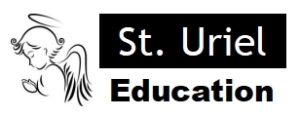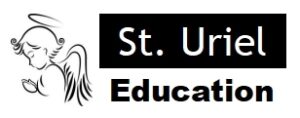In our increasingly digital world, the concept of digital citizenship has never been more important, especially for our students who are growing up in an online-centric era. Digital citizenship isn’t just about using technology; it’s about using it responsibly, ethically, and effectively. This encompasses a wide range of behaviors and skills, from protecting one’s personal information to engaging respectfully with others online.
As educators, it’s crucial that we equip our students with the knowledge and understanding to navigate the digital world safely and wisely. To aid in this endeavor, I’ve put together a comprehensive cheat sheet on digital citizenship. This resource breaks down the key elements of digital citizenship into easily digestible points, serving as a quick reference guide for students.
It’s designed to help them understand and internalize the principles of responsible digital behavior, ensuring they are prepared to make the most out of the digital world while staying safe and respectful.
The 8 Essential Elements of Digital Citizenship
Let’s explore some of the essential elements of digital citizenship:
1. Stay Safe Online
Keep personal information private (e.g., address, phone number).
Use strong, unique passwords for different accounts.
Be cautious about clicking on unknown links or downloading files.
2. Respect Others
Treat others as you would like to be treated.
Avoid cyberbullying; report it if you see it.
Respect the privacy and personal information of others.
3. Protect Your Digital Footprint
Think before you post; your online actions can be permanent.
Be mindful of the images and content you share.
Manage your privacy settings on social media and online platforms.
4. Practice Ethical Behavior
Respect copyright and intellectual property – don’t plagiarize or illegally download.
Use technology and digital resources responsibly.
Give credit to others for their work and ideas.
5. Balance Your Time
Be aware of the amount of time spent online.
Balance digital activities with offline experiences.
Practice healthy habits, like taking breaks and being physically active.
6. Communicate Effectively
Use clear and respectful language in digital communication.
Understand the tone can be misinterpreted in texts and emails.
Be considerate about what and when you share information.
7. Seek Help When Needed
Ask for help if you’re unsure about something online.
Report any inappropriate or harmful content or behavior.
Talk to a trusted adult if you feel uncomfortable or threatened online.
Related: 3 Good Resources to Help Teachers Incorporate Digital Citizenship in Their Classroom Teaching
Final thoughts
In conclusion, understanding and practicing good digital citizenship is essential in today’s interconnected world. Our cheat sheet provides a straightforward, easy-to-understand framework for students to follow, encapsulating the core principles of safe, respectful, and responsible online behavior.
By incorporating these elements into their daily digital interactions, students can navigate the vast digital landscape more confidently and ethically. It’s important for us as educators and mentors to continually reinforce these principles, ensuring that our students not only become savvy digital users but also respectful and aware members of the online community.
Remember, digital citizenship skills are not just for the classroom; they are life skills that will help our students thrive in an increasingly digital future. Let’s commit to fostering these essential skills in our students, preparing them to be responsible, informed, and empathetic digital citizens.
The post The 7 Essential Elements of Digital Citizenship appeared first on Educators Technology.


Leave A Comment